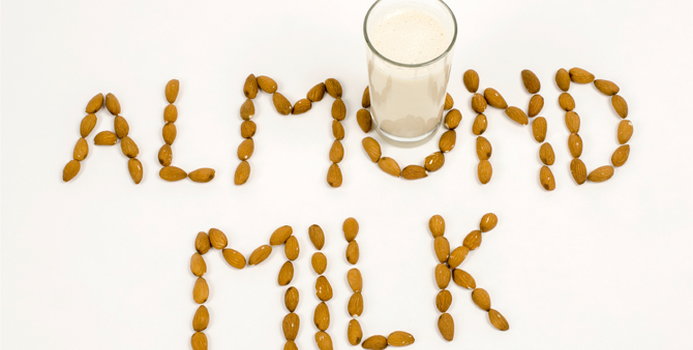Over the years, almond milk has been gaining popularity not only due to its distinct, nutty, refreshing flavor but also due to its many touted benefits. Derived from almonds, a nutrient-dense food, almond milk shares the same nutritional content. Almond milk is an excellent source of manganese, magnesium, vitamin B2 and E, tryptophan, phosphorous and copper. The abundance of these essential nutrients and trace minerals in almond milk makes it an important part of a diet.
Almond milk is a powerhouse due to its many health benefits. It reduces the risk of diabetes and several cardiovascular diseases. It also plays an important role in weight management and energy production. One of its many roles is in promoting healthier and younger looking skin.
Almond Milk as an Antioxidant
Almond milk is an excellent source of vitamin E, a known antioxidant. Antioxidants protect cells from damage caused by free radicals. Free radicals alter cell genetic code, resulting to mutated proteins. When mutation happens, cancer may develop.
Sun exposure and exposure to environmental and man-made pollutants are harmful to the skin; vitamin E acts as a shield by protecting the skin from these harsh elements. Daily skin application of vitamin E-enriched almond milk lotions and creams before sun exposure helps minimize skin damage.
Vitamin E also has natural healing properties. Almond milk can effectively treat sunburn and other minor burns.
Almond Milk has Anti-Aging Qualities
Free radicals often cause irreversible damage to the skin; it contributes to collagen and elastin depletion. Collagen and elastin are important substances that give the skin its elasticity and firmness. The collagen and elastin supply of the skin are depleted after prolonged exposure to free radicals. As you get older, your body is unable to replenish the depleted supply; this is the primary cause of wrinkles, fine lines and other skin blemishes.
Vitamin E, present in almond milk, protects the skin from the harmful effects of free radicals; this makes the skin healthy and younger-looking.
Almond milk, in the form of topical solutions, is an excellent treatment for dry, flaky skin. Well-moisturized skin prevents premature aging.
Almond Milk Hydrates the Skin
One of the common skin problems--that leads to other problems--is dry skin. Vitamin B2, also known as riboflavin is found in abundance in almond milk. It helps the tissues of the skin, hair and nails to use oxygen. Riboflavin also assists in synthesizing tryptophan--an amino acid--and producing niacin in the process. Niacin, also referred to as vitamin B3, aids in circulation. The skin benefits greatly from proper circulation. Niacin also helps in hydrating the skin by trapping moisture in the cells.
Almond Milk's Role in Oil Regulation
Some common skin problems, such as acne, blackheads and whiteheads, are caused by dirt and oil trapped in the pores of the skin. Almond milk contains essential fatty acids. They are important in controlling the amount of oil secreted by the sebaceous glands.
Almond milk is commercially available as a beverage or as a component of several personal care products. Regardless of how it is consumed, almond milk is beneficial in so many ways.



